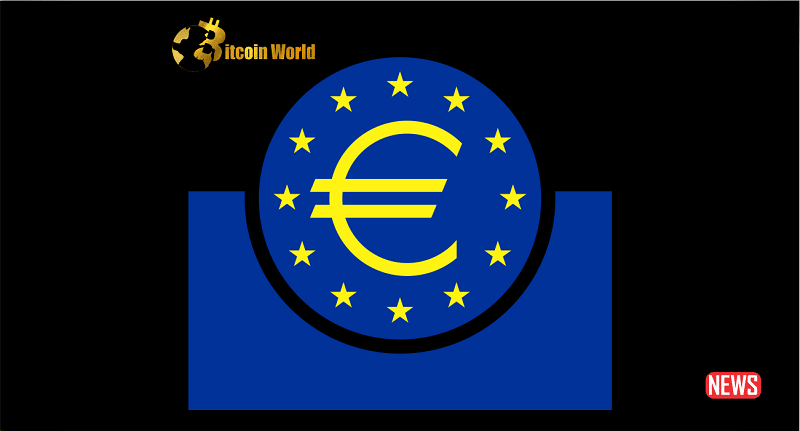The digital euro is steadily moving from concept to reality! The European Central Bank (ECB) recently released its third progress report, offering a clearer picture of how this potential digital currency will function and who will be able to use it. If you’re keeping tabs on the evolution of digital finance and the future of money in Europe, this update is for you.
How Will You Access the Digital Euro? Convenience is Key
The ECB is clearly prioritizing ease of use. Think of it like adding another payment method to your existing digital wallet. Here’s the breakdown:
- Familiar Onboarding: Your existing Payment Service Providers (PSPs) – the companies you already use for online banking and payments – will handle onboarding for the digital euro. This means familiar Know Your Customer (KYC) procedures.
- Wide Availability: Initially, residents, businesses, and governments within the eurozone will have access. The European Economic Area and select third-party nations will follow in later phases.
- Multiple Access Points: You’ll likely be able to access the digital euro through your PSP’s app or a dedicated app provided by the Eurosystem.
Making Payments with the Digital Euro: What Will It Look Like?
Imagine paying for your morning coffee or splitting a bill with friends using a fully digital form of euro. The ECB’s report sheds light on the practicalities:
- In-Store Payments: Expect to use QR codes or contactless technology, similar to how many mobile payment systems work today.
- Online and Offline Functionality: The digital euro aims to work both when you’re connected to the internet and when you’re offline, offering flexibility in various situations.
- Value-Added Services: PSPs could offer additional features like splitting payments or setting up recurring payments, enhancing the user experience.
- Cross-Border Potential: While the initial focus is the eurozone, cross-border functionality is on the roadmap for future implementation.
Conditional Payments: Adding a Layer of Automation
The report also touches on ‘conditional payments.’ What does this mean? Think of it as setting up payments that trigger automatically when certain conditions are met. However, it’s important to note what it isn’t:
- What it IS: Payments automatically instructed when pre-defined conditions are met. Imagine automatically paying a subscription fee on a specific date.
- What it ISN’T: ‘Programmable money’ where the currency is restricted to specific purchases, timeframes, or locations. The ECB has explicitly ruled this out.
What Do Users Think? Privacy Concerns Come to the Fore
The ECB also considered user feedback. A focus group survey led by Kantar Public revealed what people are looking for in a digital wallet:
| Features Users Liked | Key Concern |
|---|---|
| Budget management tools | Privacy |
| Peer-to-peer payments | |
| Offline payment capabilities | |
| QR code payments |
It’s clear that while users are excited about the potential benefits, privacy remains a significant concern. This is a crucial point for the ECB to address as the digital euro project progresses.
Fabio Panetta’s Assurance: A Public Good, Not an Obligation
ECB executive board member Fabio Panetta addressed the European Parliament, emphasizing the digital euro’s role as a public good. Here are his key points:
- Public Good: The digital euro is intended to serve the public interest.
- No Obligation: Citizens won’t be forced to use it.
- Guaranteed Access: Everyone should have the option to use the digital euro.
- Legal Tender Consideration: Panetta suggested that requiring shops accepting digital payments to also accept the digital euro could be beneficial for users.
What’s Next? The Road to Implementation
The Eurosystem, encompassing the ECB and national central banks of the eurozone, continues its research on the distribution aspects of the digital euro. The European Commission is expected to propose a regulation for the digital euro in the second quarter of this year. This regulatory framework will be crucial in shaping the final form and functionality of the digital euro.
The Future of Euro Payments: Key Takeaways
- The ECB is actively developing the digital euro with a focus on user convenience and accessibility.
- Existing PSPs will play a key role in onboarding users, leveraging established KYC processes.
- The digital euro aims to support both online and offline payments, with potential for value-added services.
- While conditional payments are envisioned, programmable money with restrictions is not.
- User feedback highlights the importance of privacy and the desire for features like budget management and peer-to-peer transfers.
- The digital euro is intended as a public good, offering an additional payment option rather than replacing existing ones.
The journey towards a digital euro is ongoing, and these progress reports offer valuable insights into the thinking and planning behind this significant development in the European financial landscape. As the project moves forward, keeping an eye on regulatory developments and further ECB announcements will be crucial for understanding the future of digital payments in the eurozone.
Disclaimer: The information provided is not trading advice, Bitcoinworld.co.in holds no liability for any investments made based on the information provided on this page. We strongly recommend independent research and/or consultation with a qualified professional before making any investment decisions.




